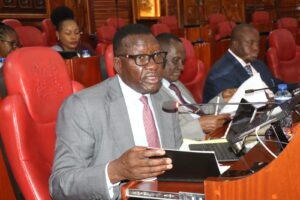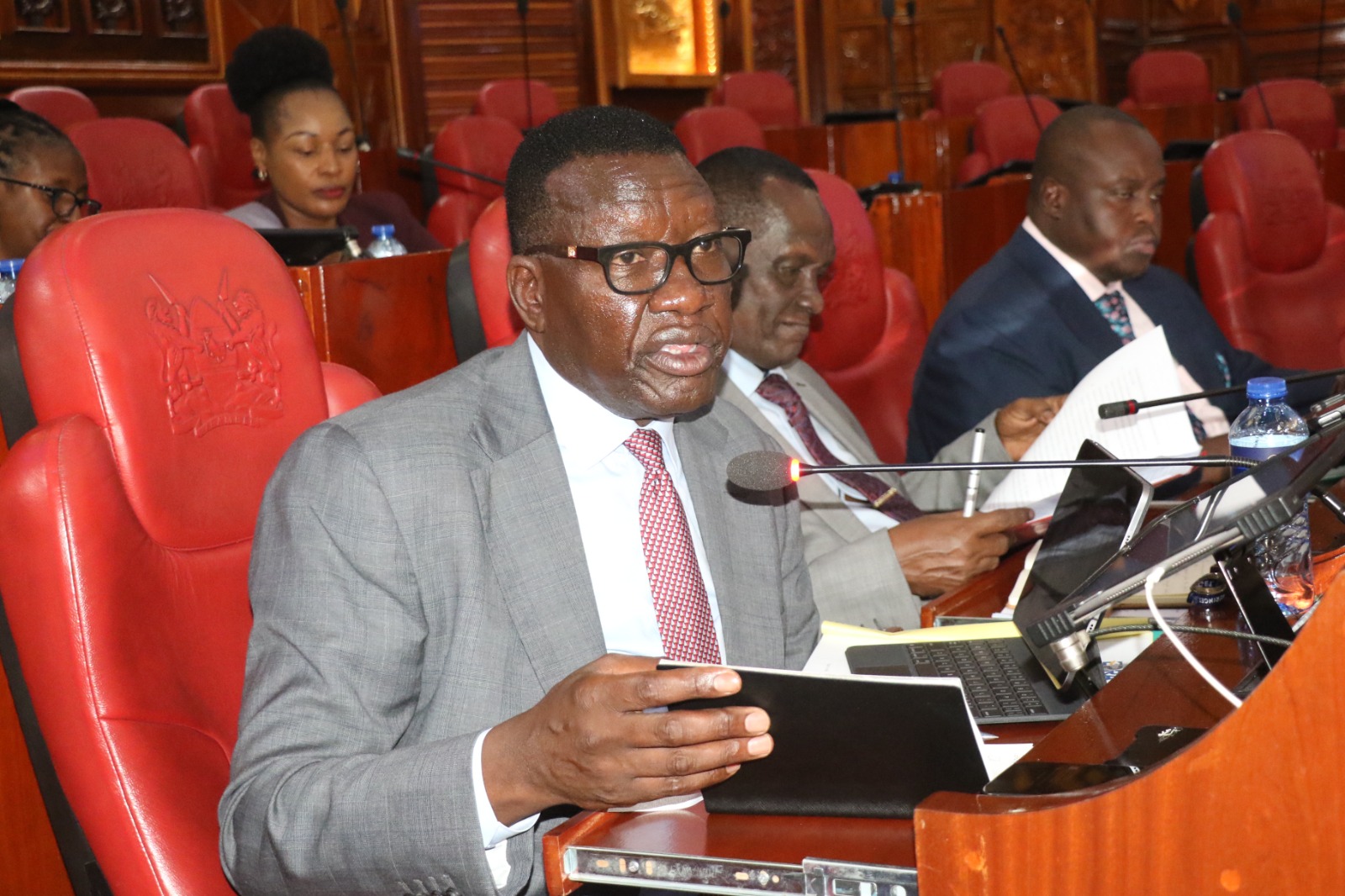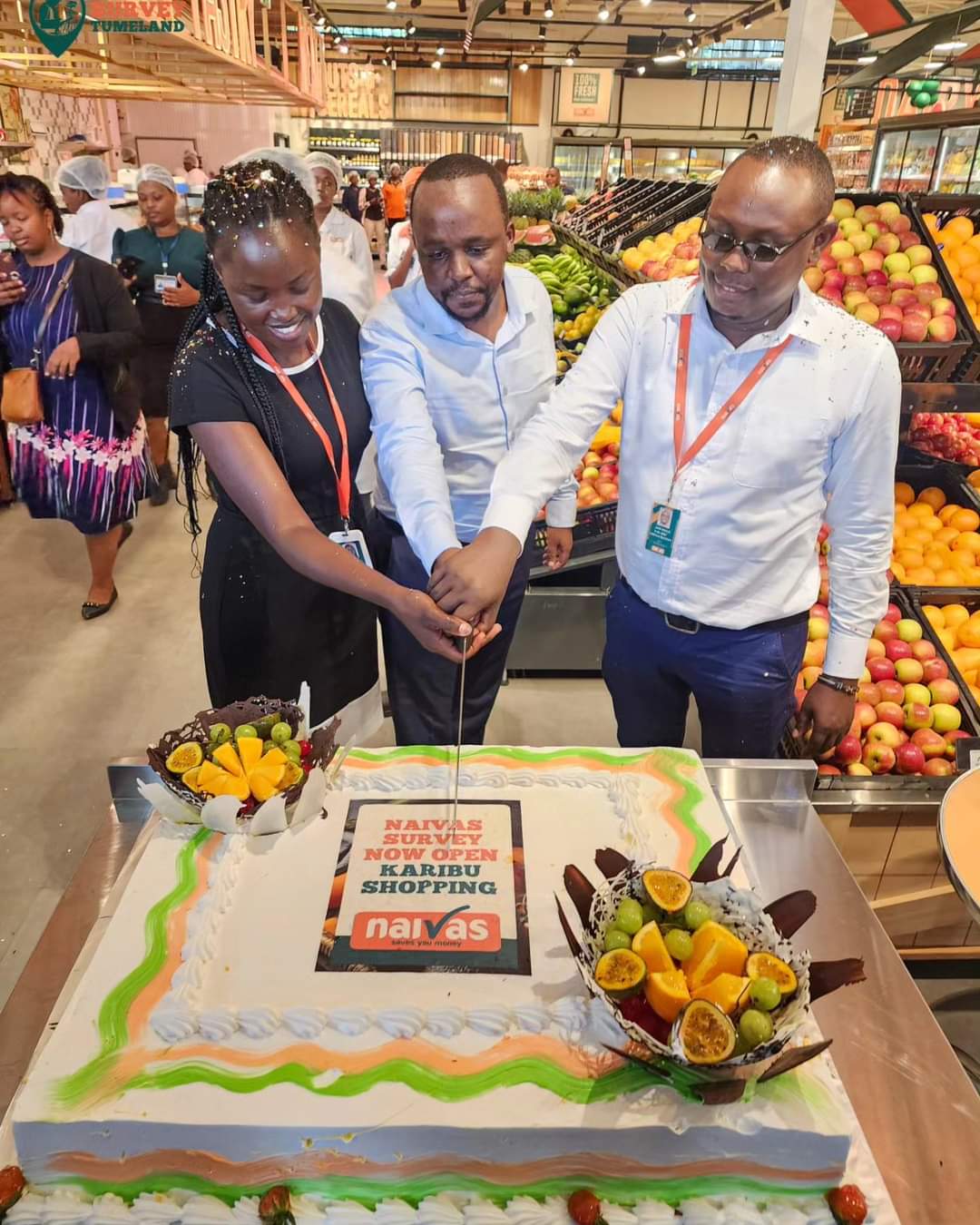
In the aftermath of the tragic Embakasi explosion incident on February 1, where non-compliance issues were starkly highlighted, the government has taken decisive action by suspending the operating licenses of 49 Liquefied Petroleum Gas (LPG) companies.
The progress unfolds alongside the revelation that individuals affected by the explosion, resulting in a minimum of 10 fatalities and over 300 injuries, will experience a delay in receiving State compensation.
Appearing before the Senate Energy Committee on Thursday 29, Energy and Petroleum CS Davies Chirchir said the National Disaster Committee has made regular visits to the Deputy President’s office but is yet to release updates on the compensating progress.
CS Chirchir faced hard times in responding to Nairobi Senator Edwin Sifuna, who had demanded to know why the victims had not been compensated a month after the incident, despite being promised by the DP.
“Why have the residents of Mradi, Embakasi East, not been compensated? A month is now over.” Sifuna Questioned.
“It is tough, like under the budget policy statement that is going through the due process now for every Ministry to put a budget for this kind of incidence, and therefore, there is a National Disaster Committee in place under the Office of the Deputy President as we’ve nominated officials from every ministry to sit in that committee to respond to such cases,” Chirchir responded.
The Cabinet Secretary elucidated that there are gaps in surveillance and crackdown on non-compliant facilities, attributing it to the understaffing of the enforcement department.
EPRA’s recent initiatives were prompted by legislative pressure, highlighting concerns about the regulator’s perceived laxity in enforcing safeguards to prevent a recurrence of the Embakasi explosion incident.
“We learned of the operation of an illegal plant at midnight when the incident happened. We had demolished the LPG plant before, and if we had arrested them before the incident happened, we would have averted this,” Chirchir said.
“The third attempt for a construction permit was made on July 31, 2023, but the application was referred on August 23, 2023, with the request for more information since a detailed qualitative risk assessment had not been attached. EPRA noted the presence of a church and residential neighborhood,” the CS said.
He added that
The CS revealed that Derrick Kimathi, the proprietor of the illegal plant where the incident happened, was a rogue operator who operated the premises as a garage during the day and as an LPG filling station at night.
Mr. Derrrick Kimathi, the possessor of the deadly LPG site, according to records submitted by CS Chirchir, was denied a license in three attempts on March 19, 2023, June 20, 2023, and July 31, 2023, all of which were rejected.
CS added, “Preliminary investigations indicate that the explosion was caused by the uncontrolled release of LPG from road tanker registration number KBJ 185X ZD2234 registered to Mr. Abraham Mwangi Nguyo. At the time of the incident, Mr. Mwangi, operating under the business name Klear Mwiki Gas Suppliers, was licensed by EPRA to transport LPG in bulk by road under License No.EPRA/LPG/10342,” CS Chirchir informed the members.
Mr. Chirchir informed the committees that Maxxis Nanyuki has already served EPRA with a stay order notice.
“However, it is worth noting that Maxxis Nanyuki Energy has already served EPRA with a stay order dated February 16, 2024, from the High Court at Milimani, terming the revocation of the license as illegal and unlawful,” he said.
The chair of the National Assembly Energy Committee, Hon. Vincent Kawaya, urged the ministry and EPRA to consider putting the new regulations into work.
“Do you think you have enough systems or networks in place to assure Kenyans that this is not going to stop because, when you look at the document by the CS, it’s fantastic? It is really what must be done.’’ Hon. Vincent Kawaya affirmed.
Nyeri Senator, Hon. Wamatinga, led the committee; however, his side pleaded with lawmakers to sensitize Kenyans to resist cheap and undefined products for use.
“I think we as members must also take it upon ourselves to go and talk to our people so that they know that cheap can be very expensive. These are some of the things that we as a country must change, and it must start with us. Sen. Wamatinga Wahome.













